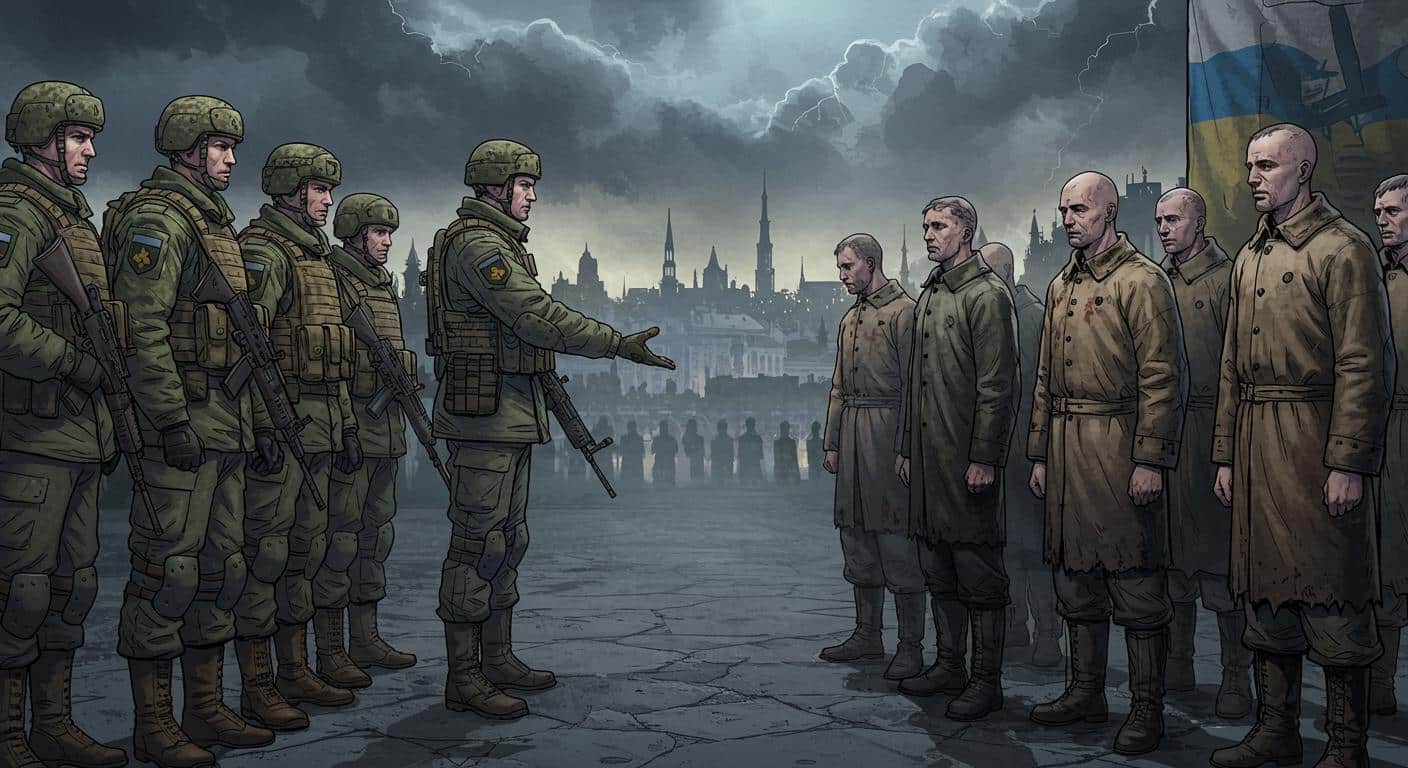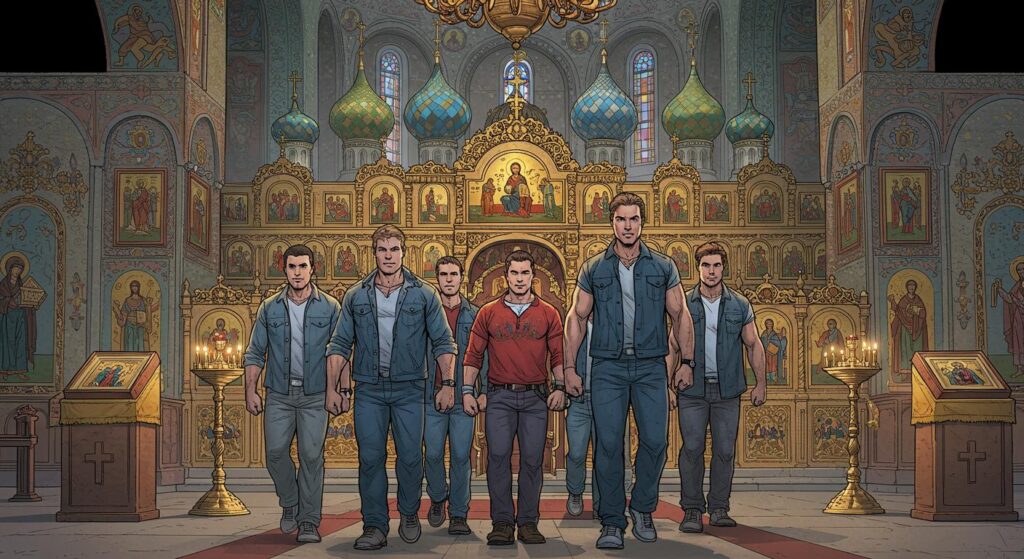Occasionally, a story surfaces that carries the strange aftertaste of historical parody, somewhere between page-turner pulp and bleak political theater. In a recent Euronews report, one such moment unfolds: Russian prison interrogators offering Ukrainian POWs a recruitment pitch—join their ranks and “occupy Europe together.”
The Surreal Sales Pitch Behind Bars
As described in interviews conducted by Euronews, the Russian approach to prisoner relations ventures well beyond traditional military tactics. The experience recounted by Volodymyr Labuzov, chief medical officer of the 36th Marine Brigade, illustrates just how bizarre the whole setup is. After enduring three years in captivity—including physical and psychological torment—Labuzov was reportedly invited to swap allegiances and help march onward, not just to Ukraine’s borders, but into Europe itself.
Labuzov recalled being told by his interrogators, “come join us and we go on to occupy Europe together,” the kind of line that, in its tone-deaf ambition, almost reads as satirical. The conversations weren’t isolated, as Labuzov detailed; this line of “recruitment” was repeated frequently to other Ukrainian prisoners of war. According to testimonies curated by the outlet, POWs commonly heard that “Ukraine didn’t exist anymore” and that their supposed fate was to join the Russian war effort—liberate Ukraine, then, hand-in-hand, venture on to Europe.
One wonders what kind of focus group landed on this as the motivational speech of choice. Are there performance reviews at the end of each week for Russian interrogators, tallying up how many POWs took the leap from captive to would-be conqueror?
Exchanges, Family Searches, and Partial Reunions
The context for these grim offers is itself full of tension. Euronews points out that Ukraine and Russia recently agreed to a 1,000-for-1,000 prisoner exchange, a rare and precarious lifeline for thousands uncertain whether their loved ones are alive or where they may be held. At these exchanges, as featured in coverage, family members arrive clutching photographs with handwritten names and unit numbers, angling for fragments of news. Sometimes, a newly released POW can confirm that someone’s missing son or brother is indeed alive and “holding up well,” as in a recent instance where a released soldier recognized a fellow captive’s mother at the swap.
Yet the reality is often less reassuring. For most relatives, the outcome is simply added uncertainty or no news at all. As described in the outlet, many released prisoners convey word-of-mouth updates—sometimes the only available evidence that someone remains alive.
Equal Opportunity Oppression
In a point emphasized by Labuzov and echoed through Euronews’ account, Russia’s approach in occupied territories does not distinguish between combatants and civilians. Details reviewed by the outlet highlight that both groups—captured soldiers and detained civilians, even children—are treated with similar disregard. “Russia doesn’t make any difference between the soldiers and civilians in their captivity,” Labuzov observed, pointing out that most civilians held had been taken from areas Russia claims to have liberated.
Civilians in occupied territories reportedly find themselves forced to adopt Russian citizenship just to survive day-to-day life, with noncompliance leading to total erasure of rights and sometimes the destruction of homes and urban infrastructure. In Labuzov’s words, “If this is not a genocide of the Ukrainian nation, then how can we interpret these conditions that Russia is imposing?”
Euronews also documents that, according to both Labuzov and other sources, where resistance to Russian forces does occur, it is often met with overwhelming force—entire towns leveled, as was the case in Mariupol and later in cities like Avdiivka and Bakhmut. The report paints a picture of devastation and loss that transcends military objectives.
A Strategy That Defies Logic
Some recruitment efforts are memorable for their subtlety, others for their audacity. The Russian “come occupy Europe with us” campaign belongs solidly in the latter camp. As Euronews notes, nine out of ten Ukrainian POWs described with stark honesty the consistent pattern of torture, threats, and then this oddly grandiose pitch. The juxtaposition would almost be comical, if not for the grim context that surrounds it.
It seems a fair question: who is this pitch made for? Is there a belief that, following years of confinement and brutality, a Ukrainian captive will leap at the chance to join their tormentors on a European adventure? It’s a logic that might leave even the most seasoned propagandist scratching their head or, more likely, flipping through a playbook from another century.
Where Farce and Tragedy Meet
This episode sits uneasily among the wider landscape of war coverage, where stories lurch back and forth between heartbreak, horror, and moments of accidental absurdity. The pattern documented by Euronews—families keeping vigil by the exchange fence, POWs relaying cryptic news, and, behind closed doors, interrogators extending invitations to empire-building—serves as a reminder that reality does not always hesitate to cross the borders of the bizarre.
As exchanges continue and more stories emerge from both sides, it’s worth asking: will such recruitment strategies ever yield converts, or are they destined to become another historical curiosity, filed away with the weirder footnotes of conflict? For now, amidst reunion and loss, the supremely peculiar persists—etched in testimony and witnessed by a world already familiar with war’s capacity for the surreal.







